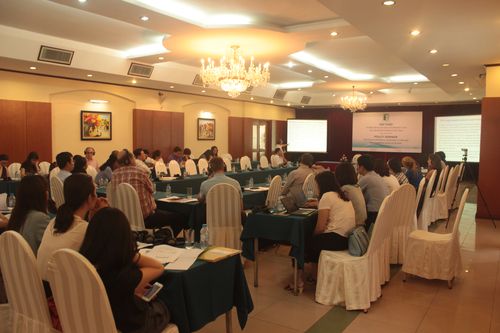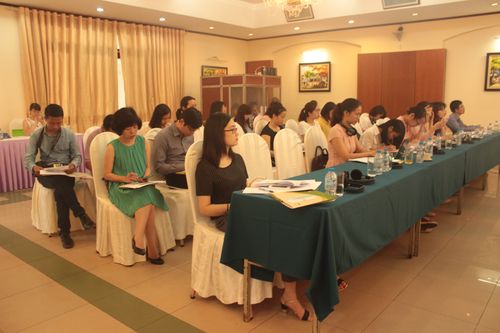Vietnam is recognized as one of the world's most biodiverse…

Policy Seminar “Free trade agreements: Investment flows and environmental issues in Vietnam”
2016 marks 30 years since Doi Moi, the government policy that opened up Vietnam to the international community and spurred Vietnam’s integration into the global economy. As Vietnam continues to integrate economically, Vietnam is currently embarking on a new wave of integration through robust and comprehensive free trade agreements (FTAs). Vietnam has signed 14 FTAs, including the Trans-Pacific Partnership (TPP), the largest regional trade agreement in over 20 years, and the European Union-Vietnam FTA.
Through the reduction and elimination of tariffs as well as other barriers to trade, FTAs encourage the free flow of goods, services, and investments. According to economists and experts, Vietnam will benefit greatly from the implementation of its recently-concluded FTAs. The World Bank stipulates the TPP alone could add an estimated 10 percent to Vietnam’s GDP by 2030, mainly because of an expansion in export-oriented sectors.
Vietnam’s main economic sectors for export – and those industries that will benefit the most from economic integration – include electronic components, textiles and apparel, footwear, aqua-products, and furniture. To take advantage of the reduced tariffs included in Vietnam’s recently-concluded FTAs, foreign companies are investing in various manufacturing industries. Recent statistical data by the General Statistics Office of Vietnam suggest that there is a strong movement of foreign direct investment (FDI) into Vietnam in anticipation of these FTAs.
However, while FTAs and FDI may benefit Vietnam economically, industrial growth spurred by free trade – especially in highly-polluting industries such as textiles and leather – has brought about numerous environmental challenges. In practice, many FDI projects utilize outdated technologies, contain high environmental risks, and invest in Vietnam given its lax environmental regulations.
Under this context, 2016 marks a pivotal time to discuss the adaptability of Vietnam’s environmental management policies, in particular how Vietnam should improve its policy framework to minimize environmental and legal risks during the trade liberalization process. In order to facilitate discussion among numerous stakeholders, the People and Nature Reconciliation (PanNature) is organizing a policy seminar entitled, “Free trade agreements: Investment flows and environmental issues.” Vietnam can and should utilize these free trade agreements to further develop economically and socially; however, Vietnam should not damage its environment in the process.
Some pictures from the seminar:


Agenda and presentations:
- Agenda
- Free trade agreements: Opportunities and challenges for Vietnam – Mr. Nick Thorpe – PanNature
- Free trade agreements and movement of investment flows – Dr. Le Dang Doanh – CIEM
- Environmental impacts in manufacturing: Current situation and recommendations – Mr. Do Thanh Bai – Chemical Society of Vietnam
- FDI management at the provincial level: Loopholes and environmental risks – Ms. Tran Thanh Thuy – PanNature



